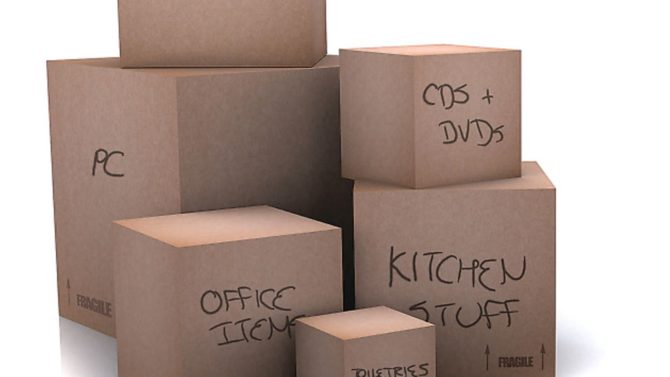Moving to France: should I arrange a pre-move survey?

If you are moving to France in the next few months, it might be time to book a pre-move survey to ensure everything runs smoothly, says Gary Burke
One of the first questions you’ll be asking yourself, when planning your move to France, is how much removal services cost.
Many people ring removals companies and want a rough quote over the phone but, of course, this is like asking for the length of a piece of string. There are so many permutations and considerations, so it’s preferable for a company to provide a detailed quote by carrying out a thorough survey of your property and personal effects.
Before they can provide such information they need to be fully aware of the cubic capacity to be moved. How many packers will be needed? What size of vehicle will be required? And how long will the whole process take?
If the international moving company is doing its job thoroughly, you’ll hopefully get a professional removals surveyor, with many years of experience in the industry. They will guide you through the best way of moving your personal possessions, such as what you can take abroad and what you can’t.
You will find out about what insurances you need to consider and why you should always fully insure your goods when moving abroad. You will be advised on how your furniture and household effects will be packed and wrapped in preparation for shipment, what to do about your leisure items, collectables and so on.
You will also be advised about separating your urgent and important items including which passports and documentation need to be kept in your personal possession; what you should pack last and why; the importance of the different types of packing materials and whether you’ll need a full packing service or not.
Tour of the house
Normally, they will start the survey upstairs, going from room to room and assessing what each one contains, and what packing materials will be required for the various items.
They will also check what is in the loft or attic and steps should be kept handy because the surveyor will need access – in some cases there’s almost another house full of items up there too!
Then back downstairs to do the same. Reception hall, kitchen, living room, laundry area, noting the cartons/box requirements, and finally the garage, garden and shed.
Packing it in
People tend to forget just how long it takes to pack, what packing materials are needed and what packing actually involves. Your removals surveyor will be able to discuss with you all of the packing materials you will need for your household effects.
They will be able to provide you with boxes in a range of sizes to hold your items, as well as protective wrapping materials such as bubble wrap and white wrapping paper sheets to help protect your fragile belongings during the journey.
In some cases, where larger or specialist items are concerned, your own personalised crates will need to be made. These crates can be made for items such as antiques, grandfather clocks, paintings, sculptures, fine art and motorcycles.
The surveyor has to note what dismantling is required and what specific or specialist tools will be needed too. This could apply to large wardrobes, beds, wall units, bookcases and dining tables.
Left behind
Your surveyor will be in a position to advise you on what items are not allowed to be imported into France. For example, the following items are prohibited: drugs and narcotics, food stuffs, dried flower arrangements, animal skins or furs, ivory etc. You can also be given guidance as to which restricted items are likely to be inspected by French customs authorities.
Insurance provision
With any international move it is vital that your items are covered by a comprehensive insurance policy which will cover you for damage and loss on all items packed by your international remover.
Your remover should be able to arrange your insurance for you and this should cover your items while in transit, and from door to door. The price of insurance will depend on the total value of the goods you are shipping, as the premium is calculated as a percentage of this value.
Industry associations
A reputable removals company will inform you of the different industry associations, along with the importance of each membership and what that means to you.
Make sure you use an international mover who is a member of the British Association of Removers Overseas, as this guarantees your advanced payment is protected through a financial bond. If the worst should happen and your company should stop trading, your payment is financially secure and your move will be carried out by another member of the BAR.
You should also check whether a company belongs to the Fédération Internationale des Démenageurs (FIDI), an accredited organisation for international movers.
This assures you of a high-quality service; using a firm that is not a member of the professional bodies can mean you don’t have this guarantee.
Make sure you don’t engage a firm that uses casual labour, students, agency staff or employees who have not had CRB checks.
Gain access
You also need to consider if a removals lorry can park in front of your home. The surveyor will carry out an appraisal of the external access at your property to assess if there are any issues, such as low-hanging branches along the length of the drive.
If there are any problems the surveyor will have to get their local removals agent to go and check for them. If the lorry is unable to get close to the house then a smaller shuttle van may be needed to go back and forth to the loading and unloading address.
The extra work involved would mean that additional movers would be required for the job, and the extra fetching and carrying could slow down your move.
Try to remember whether any pieces of furniture came in through the window. If so, the remover may need to use an external elevator to get your things out in the way they went in, or may even have to take the window out in order to remove the furniture. This is not unusual in large cities like London, Brussels and Paris, where there are often old period buildings that do not have lifts.
Is there a lift?
If the property is an apartment, the surveyor will have to check whether there is a lift and find out how many people and how much weight it holds. If there is one, is it in working order, and would there be any objections from the building’s management to it being used by the movers? These are questions that will also need to be answered.
Storage decisions
You may find you need storage prior to shipment for various reasons, and the surveyor will be able to give you a price. You might wish to have storage before you leave for France and have your goods shipped out at a later date to coincide with your arrival.
Alternatively, there may be some things you want to put into storage in France before you find a permanent residence, and your international remover should also be able to arrange this for you.
Once all of these factors have been taken into consideration and the necessary information gathered, the pre-move surveyor will return to the office and set out everything you’ve discussed in writing as a service specification, along with your quotation figure.
Gary Burke is managing director of international removals company Burke Bros Moving GroupTel: 01902 714555
Share to: Facebook Twitter LinkedIn Email


